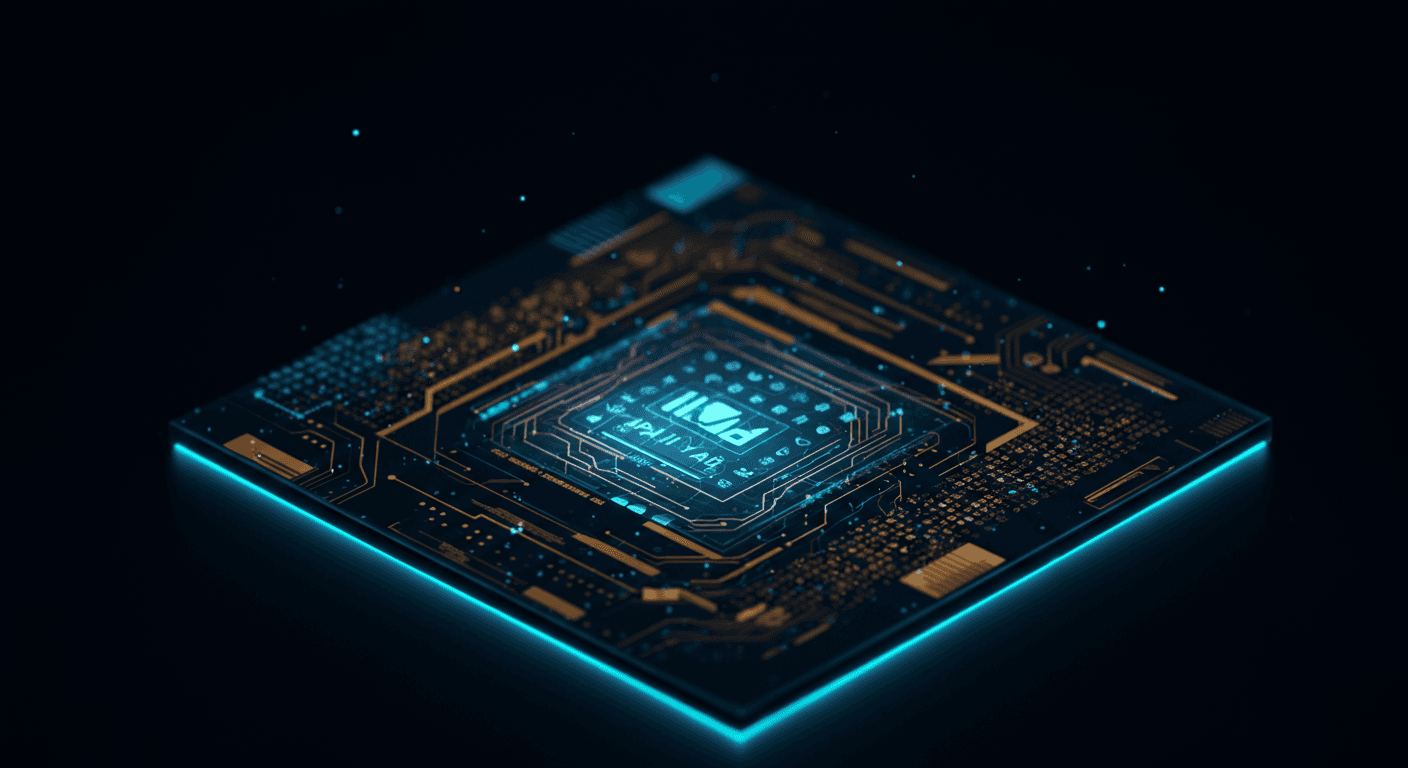PwC and AWS: Mastering Responsible AI with Automated Reasoning on Amazon Bedrock

The rapid advancement of AI technologies demands a parallel focus on Responsible AI.
The Moral Imperative
AI is no longer a futuristic concept; it's woven into the fabric of our daily lives.
But with great power comes great responsibility, as they say. We're seeing a surge in AI applications across industries, from marketing automation to healthcare providers, raising critical questions about AI ethics and societal impact. Responsible AI aims to address these concerns through ethical frameworks, governance policies, and technological solutions to ensure AI benefits all of humanity. Responsible AI is about making certain AI systems are developed and used in ways that are ethical and aligned with human values.
Rising Concerns
- AI Bias: Algorithms trained on biased data perpetuate and amplify existing societal inequalities. For example, facial recognition systems have shown higher error rates for people of color. AI bias is a complex challenge but it can be reduced with better data management and model designs.
- Lack of Transparency: "Black box" AI systems, where the decision-making process is opaque, erode trust and hinder accountability. AI models should be explainable and transparent so that the public can understand how decisions are made.
- Regulatory Pressures: Governments worldwide are enacting regulations to govern AI development and deployment, such as the EU AI Act, to protect citizens from potential harms. AI governance will help to create policies to manage these risks.
Ethical and Reputational Risks

Ignoring AI regulation and ethical considerations can lead to:
- Reputational damage: Public backlash and boycotts can cripple organizations that deploy unethical AI.
- Legal liabilities: Non-compliance with AI regulations can result in hefty fines and legal action.
- Erosion of trust: Customers and stakeholders are less likely to trust organizations that prioritize profits over ethical AI practices.
- Check out the AI news for the latest developments on responsible AI
PwC and AWS are joining forces to tackle the complexities of AI risk management, a collaboration that could redefine how businesses approach AI governance.
PwC and AWS Partnership: A Synergistic Approach to AI Risk Management
This alliance combines PwC's deep understanding of risk and governance with AWS's robust cloud infrastructure and AI capabilities. Think of it as a seasoned strategist teaming up with a cutting-edge tech provider – a potent mix.
What Each Brings to the Table
- PwC: Brings extensive experience in AI governance frameworks and risk management strategies.
- AWS: Contributes its powerful cloud platform, including Amazon Bedrock, which offers a wide range of foundation models. Amazon Bedrock is a fully managed service that makes foundation models (FMs) from leading AI startups and Amazon available through an API.
Automated Reasoning for Responsible AI
The partnership leverages AWS's automated reasoning tools to verify and validate AI systems built on Amazon Web Services. PwC can then apply its risk management expertise to ensure these systems adhere to responsible AI principles. It's about building AI systems that are not only powerful but also trustworthy and aligned with ethical standards.
In essence, this partnership aims to provide businesses with a comprehensive, end-to-end solution for navigating the challenges of AI risk management, making the adoption of AI safer and more reliable. Interested in other cloud platforms? Compare Azure Machine Learning and similar options to determine the right solution for your business.
Automated reasoning offers a new lens through which we can view the trustworthiness of AI systems.
What is Automated Reasoning?
Automated Reasoning is essentially teaching a computer to think logically, really logically. It's about creating systems that can automatically validate assumptions, verify code, and generally ensure that an AI is doing what it's supposed to do, and nothing it isn't. For instance, you could use it to verify that a Code Assistance tool isn't injecting malicious code.
Automated Reasoning on Amazon Bedrock
Amazon Bedrock provides a platform where various AI models are readily accessible. Amazon Bedrock allows users to build and scale generative AI applications. By integrating Automated Reasoning into this environment, you can subject the AI models to rigorous logical scrutiny before deploying them. Think of it as a final exam for AI.
Benefits: Validation and Verification
"Trust, but verify." - Someone smart, probably.
Using Automated Reasoning allows for:
- Validation: Confirming the AI is fit for its intended purpose.
- Verification: Ensuring the AI adheres to pre-defined specifications and safety constraints.
Scalability and Efficiency on AWS
Running Automated Reasoning on AWS leverages the cloud's inherent scalability. AWS's robust infrastructure means you can efficiently validate even the most complex AI models without being bogged down by computational limitations. This scalability is particularly useful when experimenting with multiple AI Learn models for different use-cases.
In short: Automated Reasoning on Amazon Bedrock is not just about making AI smarter; it's about making it reliably smart.
PwC and AWS have teamed up to deliver a Responsible AI solution, ensuring AI systems are not just powerful, but also trustworthy and aligned with ethical principles.
Key Features and Benefits of the PwC and AWS Solution

The PwC and AWS solution offers several key features that help organizations navigate the complexities of responsible AI:
- AI Risk Mitigation:
- AI Compliance:
- By incorporating automated reasoning, the solution helps organizations comply with ever-evolving AI regulations and industry standards. Stay ahead of the curve and avoid costly penalties! For more compliance guidance, consult resources on AI in Practice.
- AI Transparency and Explainability:
- The solution enhances the transparency and explainability of AI models, making it easier to understand how decisions are made.
- Achieve this by using tools that offer insights into model behavior. Check out the broader selection of Data Analytics tools.
- Industry Applications:
- The solution can be applied across various industries, including healthcare, financial services, and manufacturing, demonstrating its versatility and wide-ranging applicability. For instance, in healthcare, it can help ensure that AI-driven diagnostic tools are fair and unbiased.
Addressing the Generative AI Challenge: A New Frontier for Responsible AI
The explosion of Generative AI capabilities has opened up a Pandora's Box, making AI safety guardrails more critical than ever. Generative AI refers to AI models that can generate new content, such as text, images, or code.
The GenAI Risk Reality
Generative AI models pose unique risks.
These models are complex, often opaque, and can produce outputs that are biased, inaccurate, or even harmful. Unlike traditional AI, which typically performs specific tasks, GenAI operates in a more creative and less predictable space. Here's what that means:
- Bias Amplification: Models can amplify existing societal biases.
- Hallucinations: They sometimes confidently present false information as truth.
- Intellectual Property Concerns: GenAI can inadvertently infringe on copyrights.
PwC and AWS to the Rescue
PwC and AWS are collaborating to help organizations manage the risks associated with GenAI. Their solution uses automated reasoning on Amazon Bedrock to provide AI safety. Amazon Bedrock is a fully managed service that offers a choice of high-performing foundation models (FMs) from leading AI companies. This means companies can experiment with different AI models to find the best one for their use case.
Bias Detection and Mitigation
A key aspect of the solution is its ability to detect and mitigate biases in GenAI outputs. For example, it can analyze generated text for gender or racial stereotypes. By identifying these biases, organizations can take steps to refine their models and ensure fairer outcomes. The PwC and AWS Responsible AI solution provides real time feedback and suggestions for improvement.
The Human Element Still Matters
While automation is important, human oversight remains essential. The solution emphasizes the need for human review and control in GenAI applications. Ultimately, responsible AI requires a combination of technology and human judgment. It helps humans oversee AI Control, reducing GenAI risk.
In summary, as we embrace the power of Generative AI, robust safety measures are paramount, and the PwC/AWS approach provides a path forward. Now let's explore AI's impact on creativity itself...
Implementing Responsible AI with PwC and AWS isn't just a good idea, it's becoming table stakes for building trust in a world increasingly shaped by algorithms.
Implementation Steps
The first step is understanding your current AI landscape. It's about taking stock – knowing what models you're using, what data they're trained on, and where the potential risks lie. PwC's expertise combined with AWS's tech provides a framework to inventory and assess your existing AI systems. Next comes deployment, leveraging automated reasoning on Amazon Bedrock to flag potential issues. Amazon Bedrock allows you to access high-performing foundation models to build generative AI applications.Think of it like a health checkup for your AI, catching potential problems before they become serious.
Integration into AI Development Workflow
Integrating this solution isn't about throwing out your existing workflow; it's about layering in safeguards. This might involve:- Automated Fairness Checks: Incorporating regular checks for bias during model training using tools found in Software Developer Tools.
- Explainability Dashboards: Creating dashboards that visualize how your AI models are making decisions. These tools are becoming critical for transparency.
- Data Lineage Tracking: Implementing systems to track the origin and transformation of your data to minimize potential data poisoning, and are very helpful with Data Analytics.
Technical Requirements and Adoption
You'll need a solid understanding of your existing AWS infrastructure and familiarity with AI development practices. PwC and AWS provide detailed documentation and training materials to smooth the adoption process. Think of this as learning a new language; it takes effort, but the rewards are worth it. To kickstart your journey, resources such as Learn AI Fundamentals can offer foundational insights.Support and Resources
PwC and AWS offer comprehensive support throughout the implementation process, including workshops, consulting services, and dedicated account teams. Organizations can also find relevant tools in Best AI Tools Directory.Ultimately, responsible AI is not a destination, but a continuous journey. By embracing these steps and leveraging the resources available, organizations can build AI systems that are not only powerful, but also trustworthy and aligned with human values. Now, let’s explore other tool categories and find the right options for your team.
The Future of Responsible AI: Trends and Predictions
Responsible AI isn't just a buzzword; it's becoming the cornerstone of sustainable AI development. Think of it as the ethical compass guiding the AI revolution, ensuring we don't end up lost in a forest of unintended consequences.
Emerging Trends in Responsible AI
Explainable AI (XAI): We need to understand how* AI makes decisions. Tools like Captum are vital, allowing us to dissect the "black box" and build trust. The tool aids in model interpretability, helping to understand feature importance and model behavior.
- AI Governance Frameworks: Organizations are scrambling to establish clear guidelines. Think of it as setting the rules of the road before everyone starts driving AI-powered vehicles.
- Bias Detection and Mitigation: AI is trained on data, and if that data reflects societal biases, the AI will perpetuate them. It's crucial to actively identify and correct these biases.
Predicting the Future of AI Regulation
Governments worldwide will likely introduce more stringent regulations around AI, focusing on data privacy, algorithmic transparency, and accountability. This will impact organizations across all sectors, demanding proactive compliance measures.
AI for Social Good
AI's potential for positive change is immense. We’re talking about using AI to tackle climate change, improve healthcare, and promote education – truly transformative stuff. Consider AI's potential to revolutionize scientific research, accelerating breakthroughs and driving innovation in various fields.
Advancements in Automated Reasoning
The future holds incredible advancements in Automated Reasoning and AI validation. Expect more sophisticated tools capable of verifying AI systems' behavior, ensuring they align with ethical principles and societal values.
In short, the future of AI hinges on Responsible AI. It's not just about building powerful algorithms but about building trustworthy ones. The key is to embrace ethical considerations, foster transparency, and prioritize social good alongside technological progress. As AI becomes increasingly integrated into every facet of our lives, staying up to date with AI news will be imperative.
Keywords
Responsible AI, AI risk management, PwC AWS Responsible AI, Amazon Bedrock, Automated Reasoning, AI governance, AI ethics, Generative AI risk, AI compliance, AI validation
Hashtags
#ResponsibleAI #AIRiskManagement #AmazonBedrock #AutomatedReasoning #PwC
Recommended AI tools
ChatGPT
Conversational AI
AI research, productivity, and conversation—smarter thinking, deeper insights.
Sora
Video Generation
Create stunning, realistic videos & audio from text, images, or video—remix and collaborate with Sora 2, OpenAI’s advanced generative app.
Google Gemini
Conversational AI
Your everyday Google AI assistant for creativity, research, and productivity
Perplexity
Search & Discovery
Clear answers from reliable sources, powered by AI.
Cursor
Code Assistance
The AI code editor that understands your entire codebase
DeepSeek
Conversational AI
Efficient open-weight AI models for advanced reasoning and research
About the Author

Written by
Dr. William Bobos
Dr. William Bobos (known as 'Dr. Bob') is a long-time AI expert focused on practical evaluations of AI tools and frameworks. He frequently tests new releases, reads academic papers, and tracks industry news to translate breakthroughs into real-world use. At Best AI Tools, he curates clear, actionable insights for builders, researchers, and decision-makers.
More from Dr.Was this article helpful?
Found outdated info or have suggestions? Let us know!


